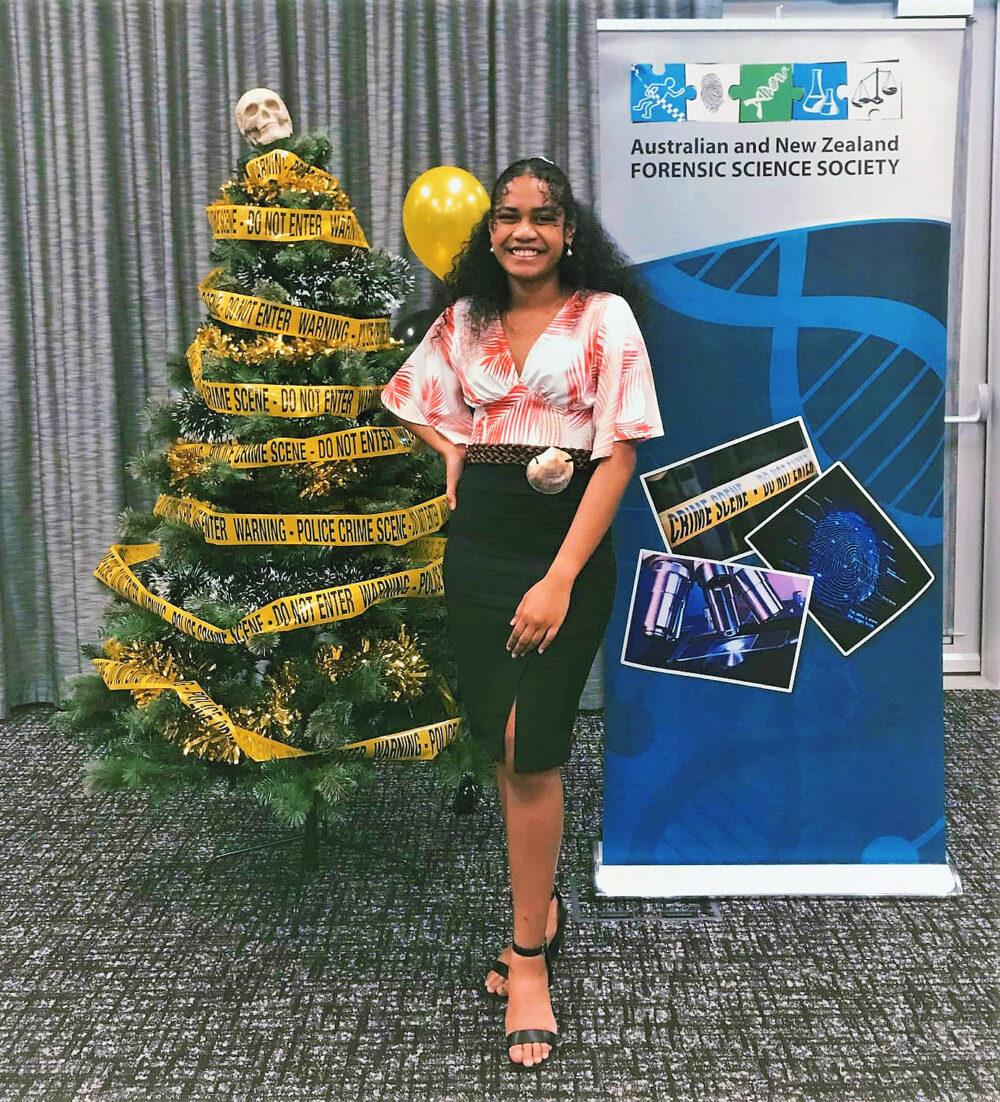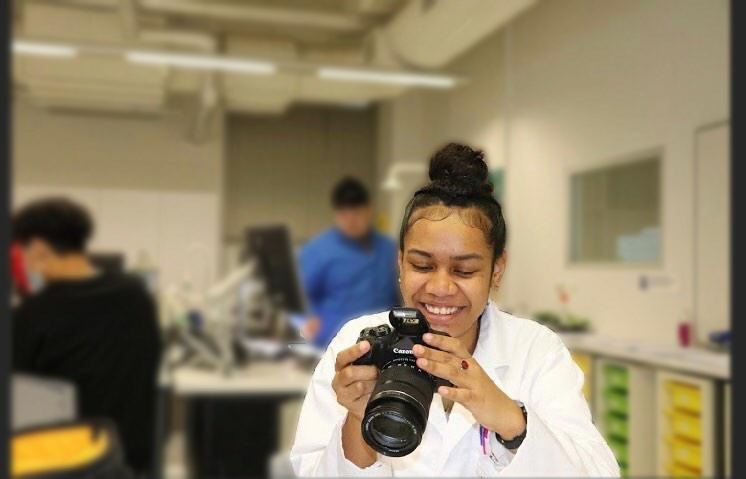
Bachelor of Forensic Science – majoring in Chemistry
University of Technology Sydney
2020 – 2022
Recognising International Day of Women and Girls in Science, Australia Awards recipient Peniana Qonitoga talks about her motivation and experience in studying forensic science and the potential benefits to Fiji.
- What motivated you to study forensic science?
My interest in forensic science began when I took a liking to crime fiction novels by authors such as James Patterson and Karin Slaughter. During that time, I was studying science in high school. I wanted a career in science that I was passionate about; the only problem was figuring out which branch I wanted to go into. Literary works, tv shows and movies centred on forensic science and its aid in criminal justice sparked my interest in the field and motivated me to look into the forensic field in Fiji. I read about the Laucala Beach Estate Raid in 2004 and double-homicide of the Russian couple in 2016, which strengthened my determination to study forensic science. Ultimately, I felt motivated to enrich and advance this field in Fiji.
- Why does Fiji need this specialisation?
Like other countries, Fiji deals with numerous crimes including homicide, rape, aggravated robberies, missing persons, abductions and drug cases. Forensic science helps to determine accurate, reliable evidence to guide investigators with a case and to avoid personal bias and perjury. The need for Fiji to have this specialisation also benefits the economy and police forensic department, as less assistance will be required from other countries to manage such cases.
- Why is it important for females to work in forensic science?
The inclusion of women in STEM fields is highly encouraged. Forensic science has seen an increase in female graduates and experts over recent years. I believe it is important for females in particular, to work in forensic science because we have a different outlook. For example, females can be more detail-oriented which is extremely important in the analysis and comparison evidence (such as fingerprints and bullet striations). Although it is a field discovered by the minds of brilliant men, there have been many remarkable women in forensic science who are also positive role-models.
- What have you enjoyed most about the Forensic science course so far?
I have enjoyed my subjects and interactions with students and academics. I love hearing case examples during lectures as well as researching honours and PhD projects. One of my favourite moments was working on a major assessment in my first year; where we had to choose a famous criminal case and write a report on the forensic issues that lead to a wrongful conviction. These types of assessments allow me to have greater appreciation for effective forensic science practices and their impact.
- Tell us about the professional connections you have made in Australia.
Despite the difficulties that came with online learning, I have been able to make friends and create networks in Australia. In my first year, I attended a dinner hosted by the UTS Forensic Science Society, where students, academics and field experts met and formed networks. I engaged with experts in forensic taphonomy and cyber security, and honours students about the nature of their research. This experience helped me gain a deeper understanding and appreciation of the current progress and work being carried out in the sector.
- What is the most valuable thing you’ve taken from your scholarship experience in Australia so far?
Developing my independence and understanding the importance of creating networks. Due to the pandemic and travel restrictions, I was separated from my family and I became homesick. However, I’m grateful for the experience because it allowed me to be independent at a young age which is uncommon for most young girls in Fiji. I’ve met people from different walks of life and formed networks that have helped me during my study, and I believe will continue to help me in my future as well.
- What do you hope to do (professionally) when you return to Fiji?
Drawing on my Australia Awards Scholarship and Bachelor of Forensic Science, I hope to become part of the Fiji Police Forensic Science Division as a chemical analyst or an analytical technician (or similar).
- What advice do you have for other women who want to study forensic science?
I say go for it! Forensic science might not be exactly what the media depicts; it’s so much more. It’s a field that requires passion for what you do and compassion for the community and those around you. To the women and girls that want to study forensic science, I encourage you to step out of your comfort zone. Forensic science is not for the weak but if you are determined to make a difference and to help others, then I encourage you to take the leap.

2 Comments
LVR February 11, 2022
Super Proud of you my beautiful Niece Pe❤
Veniana Camaira February 11, 2022
Thank you lewa,for being an inspiration to other women and girls
Leave a comment